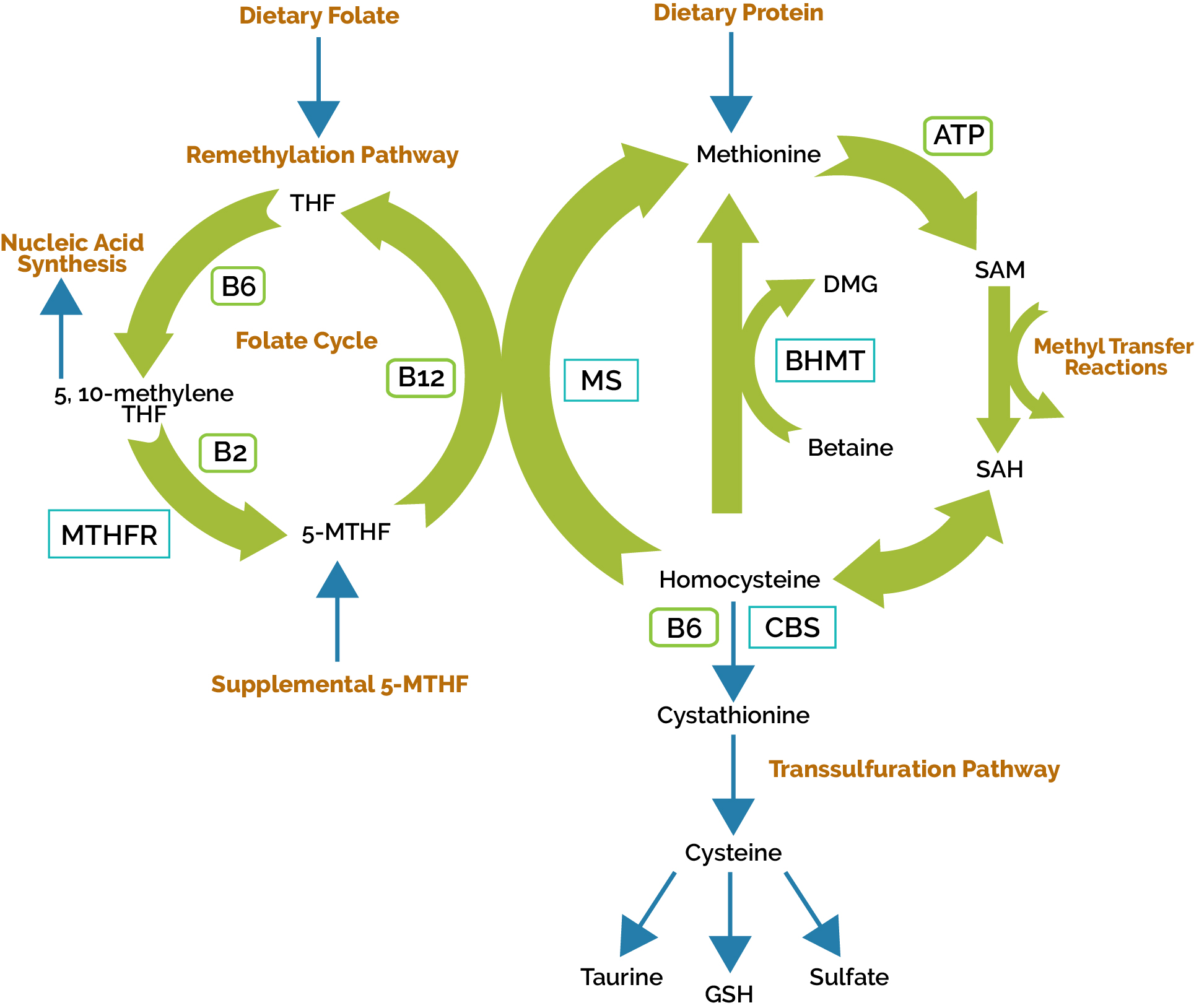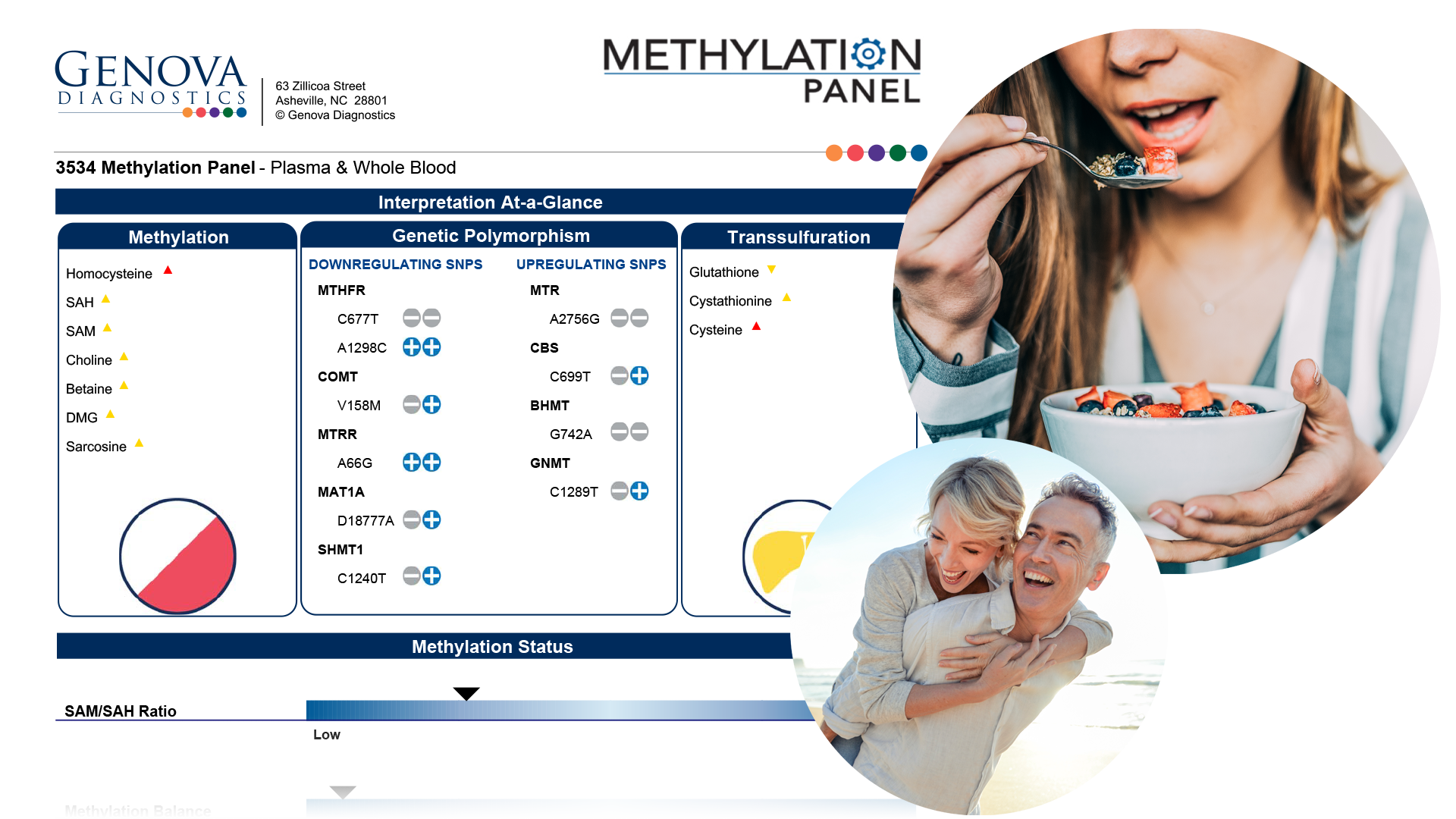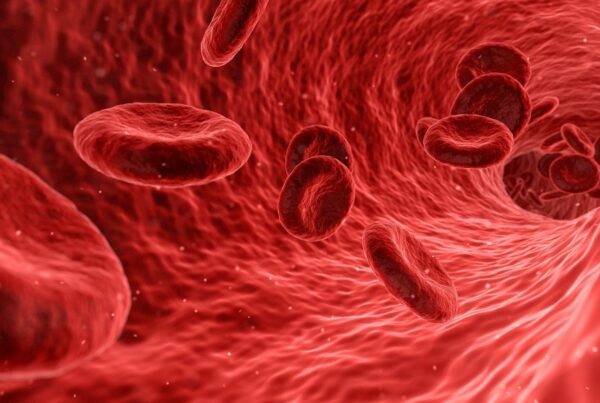How efficiently do you metabolize hormones, break down environmental toxins, and break down neurotransmitters?
Methylation is a complex set of biochemical reactions taking place millions of times each second in our cells. And while the details around these reactions are very challenging to understand even with years of study, many people have been told by practitioners they’ve consulted that they are “poor methylators” based on the status of one particular now-famous gene: methyltetrahydrofolate, commonly known as MTHFR.
A few roles that methylation plays in the body:
-
Hormone (especially estrogen) production, metabolism, and detoxification
-
Neurotransmitter metabolism (and thus stress/mood regulation)
-
DNA regulation and cancer protection
-
Immune cell activation
-
Detoxification of environmental toxicants including heavy metals and others
-
Blood pressure regulation
A whole industry has grown up around the treatment of polymorphisms in the MTHFR gene. And there are studies to show that there is an association between some of those polymorphisms and various disease risks. But the fact is, knowing your MTHFR status can’t tell you how efficiently you carry out methylation, any more than knowing the plays in a football playbook can tell you the outcome of a game. The game has to be played in the real world, and the genes have to be expressed and regulated in real cells.
Genes are one thing; gene products are another. To use another analogy, knowing about polymorphisms – even lots of them – is like having the blueprint of a car engine. But you can’t know how efficiently that engine runs until you actually sample the exhaust of the engine while it’s running.

This is a highly simplified depiction of the genes, cofactors, and pathways involved in the methylation cycle. As you can see, MTHFR (depicted in a box in the lower left of this image) is only one gene in a network of many genes involved in supplying the products that run the methylation cycle. If you want to know if you are a “poor methylator,” you need to know more than the polymorphisms on these genes. You need to know the levels of these gene products and their ratios. That tells you if the MTHFR or other polymorphisms are having an actual impact on your methylation cycle.
I have put together an assess/test/review package that will allow you to see not only if you are carrying out cellular methylation efficiently, but also see the health impact impaired methylation might be having.
Assessment
The Nutritional Assessment Questionnaire (NAQ) is among the most comprehensive assessments available for correlating your complete symptom inventory with your personal pattern of eating. The NAQ takes your answers to over 300 questions about your health and your diet and uncovers specific nutrients or food types that are likely to be contributing to your symptoms and underlying organ imbalances. You will receive a link to fill out the NAQ online. Once completed you will then be scheduled for a 45 minute session with Maria, who will go over the results and will make specific recommendations for you regarding dietary adjustments and/or other therapies that are indicated.
Test
Those purchasing this package will receive a test kit from Genova, one of the largest functional testing laboratories in the country. Their Methylation Panel tests the level of the various methylation cycle reaction products. These are the products that tell us if you are actually spinning that cycle at the speed you need to in order to generate methyl groups. The test quantifies each of the following:
- Betaine
- Betaine/Choline Ratio
- Choline
- Cystathionine
- Cysteine
- Dimethylglycine
- Glutathione
- Glycine
- Homocysteine
- Met/Sulf Ratio
- Methionine
- Methylation Balance Ratio
- SAH
- SAMe
- SAMe/SAH Ratio
- Sarcosine
- Serine
- Taurine

Each component on that test list offers insights into different aspects of the overall methylation process and how efficiently it is working.
There is a great deal of buzz these days about “personalized medicine,” i.e. diet and nutrient recommendations that are based upon every individual’s unique physiology and biochemistry.
Review
With both lab results and the NAQ nutrient analysis in hand, the next component of this package is a 30-minute consultation with me in order to review the labs, determine which (if any) aspects of the methylation cycle are needing the most support, and bring that all together into a coherent and personalized set of recommendations.
There is a great deal of buzz these days about “personalized medicine,” i.e. diet and nutrient recommendations that are based upon every individual’s unique genetic makeup. This package takes that two steps further, bringing in physiology and biochemistry, as well as the full nutritional analysis.
This bundle of assessment/test/review represents the very definition of personalized medicine.
Bundling tests and services is a way for us to offer discounts. Paid individually, the elements in this package retail at $560. Purchased as a package we’re applying a 10% discount, bringing the total down to $504. Call 503-719-4806 or email info@immersionhealthpdx.com to schedule your complete methylation evaluation.




